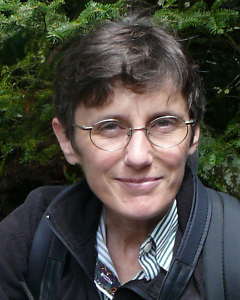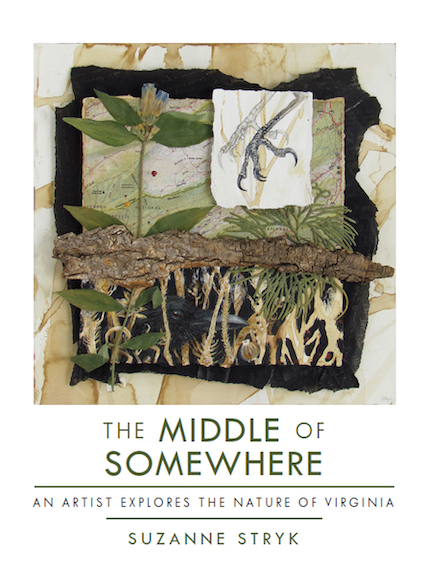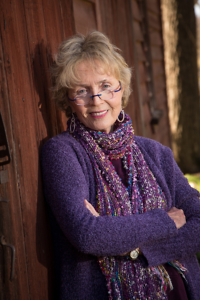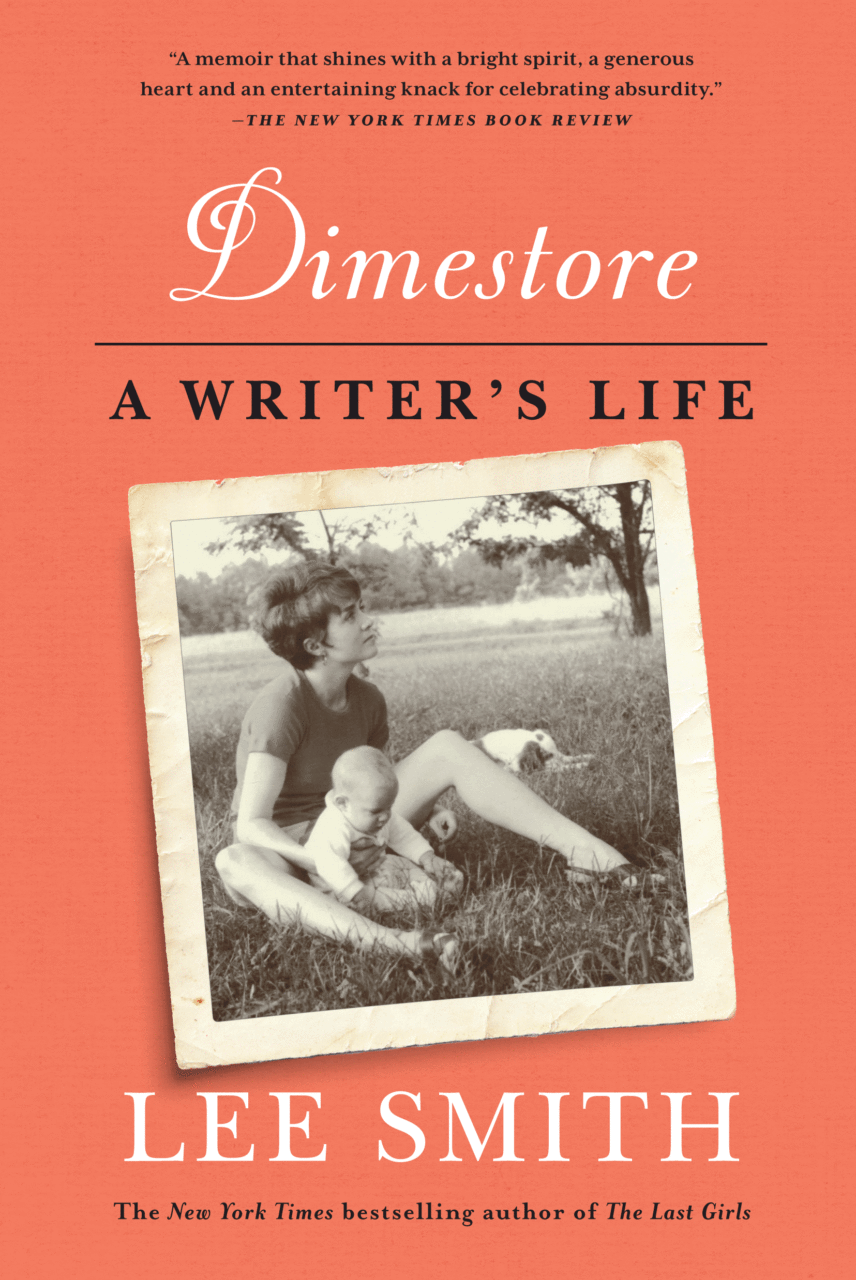Finding Her Literary Voice in the South
Bestselling novelist Cathie Pelletier reflects on her move from Maine to Tennessee
FROM THE CHAPTER 16 ARCHIVE: This interview originally appeared on May 28, 2013.
***
Cathie Pelletier’s first novel, The Funeral Makers, made a big splash when it came out in 1986, and over the next two decades she wrote ten more, including two under the pen name K. C. McKennon. One of those, Candles on Bay Street, garnered a million-dollar advance from Doubleday in 1998; the book was translated into ten languages and made into a movie. All of Pelletier’s novels are set in her home state of Maine, but all of them were crafted, at least in part, here in Tennessee, where she lived between 1976 and 2006—and where, in her words, “I found my voice as a novelist.” She moved to Nashville hoping to become a songwriter, but books turned out to be her stock in trade; in addition to the novels, she collaborated on nonfiction works with Tanya Tucker, Skeeter Davis, Doug Kershaw, and other country-music luminaries. Her latest novel, The One-Way Bridge, has just been published. Prior to appearances in Nashville and Memphis, Pelletier answered questions from Chapter 16 via email:
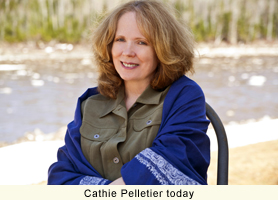 Chapter 16: You first came to Nashville from your home state of Maine in 1976. Tell us the story of that migration.
Chapter 16: You first came to Nashville from your home state of Maine in 1976. Tell us the story of that migration.
Cathie Pelletier: I had started college at the University of Maine when I was sixteen and was expelled at seventeen for what they called “radicalism.” (It wasn’t. It was more like childish insubordination and campus pranks.) So I set out, hitch-hiking across the country with a girl I’d just met. When we hitch-hiked through Tennessee, I knew I’d come back to live there. The South spoke to me. It’s that simple.
In 1976, after I went back to college and graduated without noticeable incident, a friend and I moved to Nashville. I was twenty-three years old then, and my first collection of poetry was published that summer. I figured writing poetry meant that I would soon be a successful songwriter. Man, was I wrong. Country songs have character, and story and even dialogue. “Long Black Veil.” “Clayton Delaney.” “Middle Age Crazy.” If I wasn’t at Mills Bookstore at noon, I’d be at the Rock ‘n’ Roll Hotel bar at 2 a.m.
It was so exciting to be in Nashville back then. Would Elvis Costello go behind the bar at the Rock ‘n’ Roll and serve customers? Would one of the Eagles walk in the front door? Look, there’s Shel Silverstein out on the patio! Maybe it’s still that way, and I just got older and moved in another direction. But for a young writer, Nashville was a hell of a playground. Listening to songwriters talk about their work was like being in a perpetual workshop. I knew I had found a place to roost and to study my craft.
The awful thing for those of us who adopted Nashville as home is that we left our real families behind. In my case, 1,500 miles behind. And there were no cell phones or emails then. So an occasional collect-call home a couple times a month had to suffice until I could afford to pay a phone bill myself. But take away security like that, pull the creative rug out from under novice feet, and you better write. Otherwise, you’ll sink and drown.
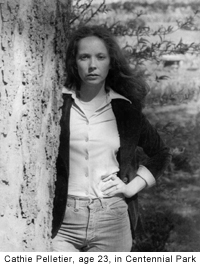 Chapter 16: Was your first novel written here?
Chapter 16: Was your first novel written here?
Pelletier: I had always thought I’d be a poet and maybe even write a good song occasionally. I worked very hard at both. Then, in 1984, I attended a writing conference at Vanderbilt with Lee Smith as instructor. (Marge Piercy’s poetry class was full.) Lee read my short story and said, with that wonderful accent of hers, “Why don’t you write a novel?” So I wrote The Funeral Makers. Lee read it and then found me an agent. Imagine that.
All eleven of my novels are set in Maine, and yet nine were completely written in Tennessee, and the other two were begun there. Even this new one, The One-Way Bridge, came to me when I was living in Nashville. I had just come home from hanging out with songwriters at Bennigan’s on Murfreesboro Road, the latest place in town for last call. I turned on CNN, and I happened to see a news clip of a one-way bridge being torn away in an ice jam. It was a bridge here in Allagash. I started taking notes on the characters and the story, pages and pages of notes.
I found my literary voice in the South. I have never doubted that. At least for me, it’s better to look back in time as I write, to imagine and remember Maine. Tennessee gave me that separation.
Chapter 16: You lived here on and off for thirty years, often returning to Maine for family visits in the summer. Talk about the pull you felt, in both directions, as time passed.
Pelletier: For many years, my way of bringing Northern Maine to the South was having my mother make a Christmas wreath for Bennigan’s Tavern. It was made with pine boughs and cones from our property here. Then, in 1993, I met my husband when I was on book tour in Toronto. So I let love lead me north of the border. But after two years of looking out at Lake Ontario from nineteen floors up, I packed up again and moved back South, bringing my husband with me. He fell in love with Tennessee, just as I had.
But it’s tough to be so far from family. With my father living here in the family homestead alone (he’s ninety-three now and the oldest citizen in Allagash), I decided it was time to move back home and be with him. I was born in this house, a house Daddy built in the late 1940s. He dug the foundation with horses, and it took almost a month. But Thomas Wolfe knew his stuff. Coming home is tough when roots run as deep as they do in this town. It’s like drowning in old memories sometimes. So it’s very possible that I’ll find a spot in Tennessee that calls me back one day.
Chapter 16: Did any pieces of Southern culture rub off on you for keeps, or have they all washed away?
Pelletier: A few years before my mother died, she heard me talking to the UPS driver. “Sir?” I asked when I didn’t understand him. Later that same day, I said, “Oh yes, Ma’am,” to a woman at the grocery store. That night I heard Mother telling my sister, “Cathie is so much more polite since she’s been living in Tennessee.” When I have a couple glasses of wine, the Southern accent comes out. No self-respecting Southerner would endorse it as genuine, but I’ve lived in Tennessee longer than I’ve lived anywhere. When I say “I could hug your neck,” you can see a flash of panic in some eyes. You’d think I was asking to put a rope around their necks and hang them until dead.
As for food, I fell in love with okra, but I’ve been vegan most of my life, so food wasn’t a big issue with me. Strangely, I only discovered boiled peanuts a couple years before I moved from Tennessee. What a waste of all that time that I could have been devouring them! I’m addicted to them. Now, I beg a friend in South Carolina to mail me fresh peanuts each year. In turn, I send her wild fiddleheads that I pick on my riverbank above the house.
But I think what I miss most is that Southern sensibility. There’s a kind of sisterhood/brotherhood I feel in the South. To give you an example, when my dear friend Dean Faulkner Wells died last year, and I heard the awful news from her husband, Larry Wells, I picked up the phone and dialed Mary Gay Shipley at her bookstore in Fayetteville, Arkansas. I hadn’t talked to Mary Gay in years. “Mary Gay,” I said, “It’s Cathie Pelletier, and I need to talk to someone Southern.” She laughed out loud, not realizing I was serious until I told her the news about Dean. It just came out that fast: “I need to talk to someone Southern,” as if that person would realize the impact of the loss of Dean Faulkner Wells quicker than anyone else on the planet. That’s the kind of kinship I miss dearly.
Chapter 16: What brings you to Nashville this time? Does it feel like a homecoming?
Pelletier: You know, I have family in Tennessee now. My niece, Diana Pelletier, came to stay with me, also from Allagash, and ended up marrying a young man from Nolensville. Then she studied in Knoxville to become a veterinarian and now owns a clinic in Goodlettsville. So her two children are really Southerners. Everyone in the family loves to listen to them talk when they visit. When my great-niece was tiny, she said to our dogs, “Hush, dogs. Y’all hush now.” I promise you, no one here ever says “hush” to anything, let alone dogs.
This time, I’m coming to sign my new novel. I simply can’t wait. Each time I ever stepped off a plane in Nashville, I could feel the South. It descends, like a muse. There’s a weight to the South, a constant reminder to me that I’m not in Maine. When I sit on my river here and think of the South, I smell wisteria and honeysuckle. I’m sure it probably grows somewhere in Maine, but you need humidity and the background rattle of cicadas to appreciate those two words. And I have longed for the sound of the mockingbird, which we don’t have this far north. Last year, one appeared at the family graveyard, sitting day after day on the fence and guarding its territory. No birders up here have ever, not once, sighted a mockingbird before. I’m convinced it came from Nashville.


